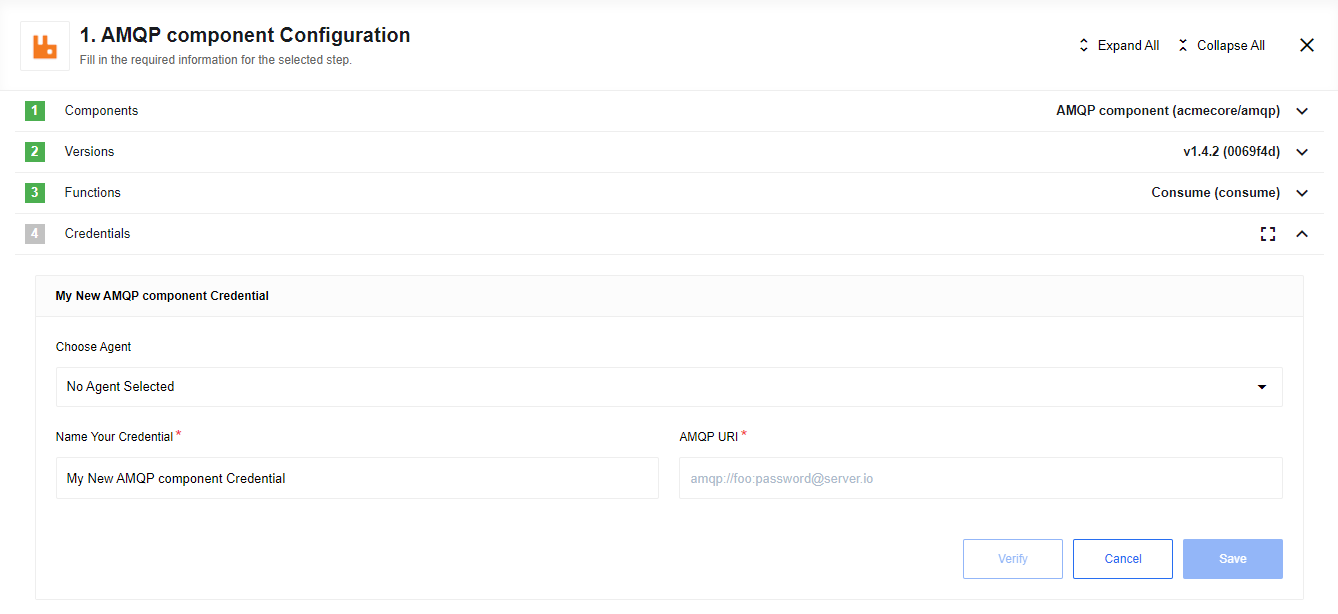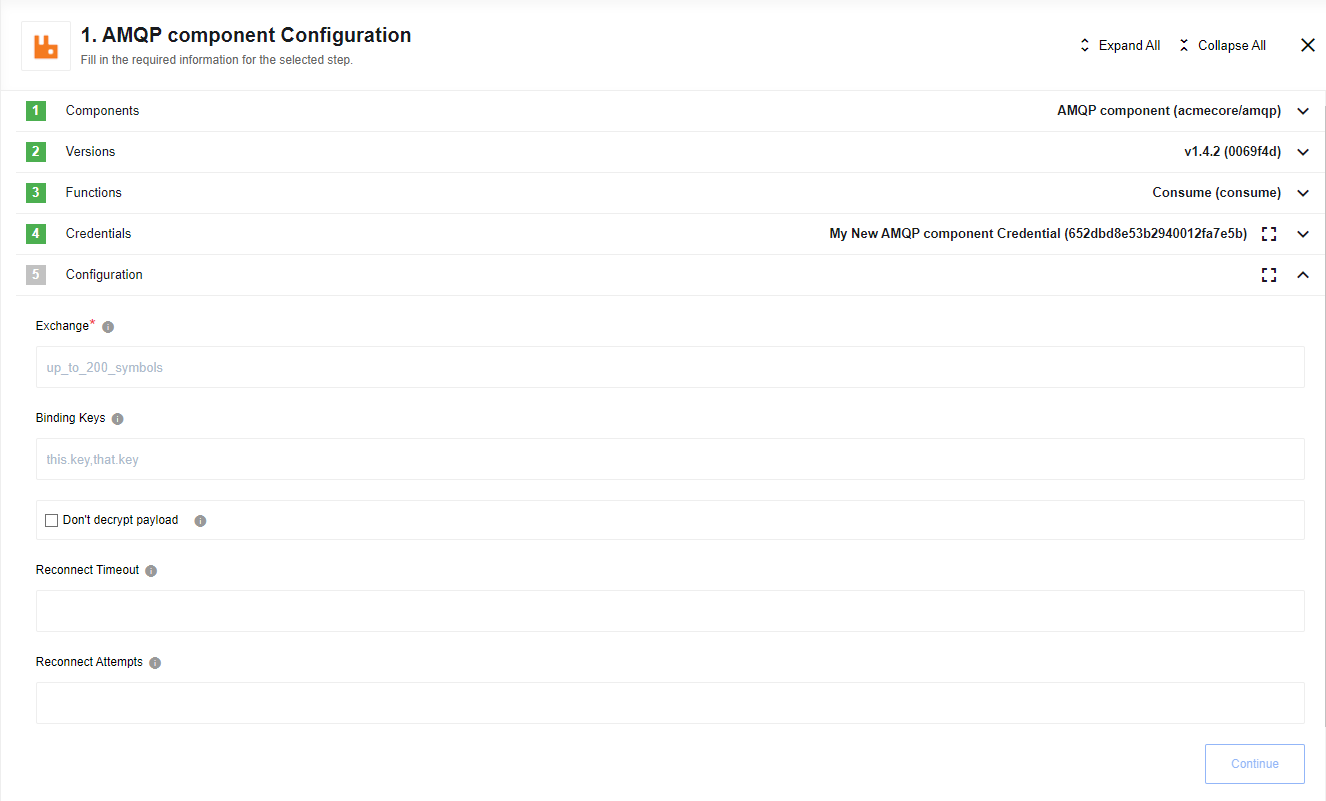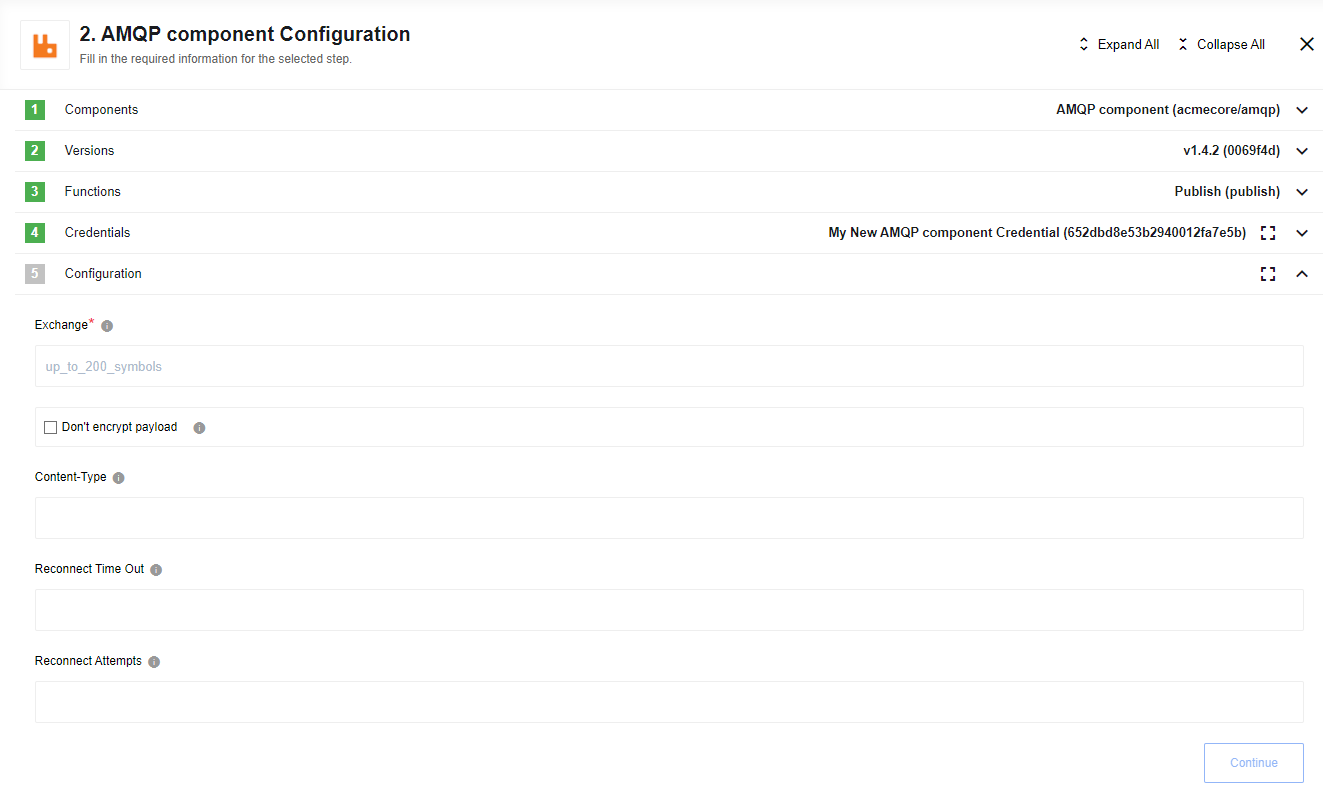AMQP component
Table of Contents
Description
This component provides connectivity to message brokers that support the Advanced Message Queuing Protocol (AMQP). AMQP is an open standard for asynchronous message-based communication between applications. For more information, visit amqp.org.
It enables publishing messages to exchanges and consuming messages from queues.
How it works
The consumer (in the “Consume” trigger) automatically creates a non-exclusive, non-durable queue with the autoDelete property set to true. This queue does not have a dead-letter exchange configured.
The queue name is dynamically generated using the pattern eio_consumer_{USER_ID}_{FLOW_ID}.
This queue is then bound to the specified exchange using one or more binding keys (provided as a comma-separated string).
Requirements
Environment variables
The component supports automatic payload encryption and decryption using AES-256. This feature is enabled by default but can be disabled using the Don't encrypt payload or Don't decrypt payload configuration options.
The following environment variables are required for encryption/decryption and are automatically provided by the elastic.io platform:
ELASTICIO_MESSAGE_CRYPTO_IV- vector for symmetric encryption.ELASTICIO_MESSAGE_CRYPTO_PASSWORD- password for symmetric encryption.
Credentials
The component requires an AMQP connection URL. The username and password must be embedded within the URL, for example: amqp://user:password@hostname.
Additional parameters, such as the vHost or port, can also be specified as part of the URL syntax.
Triggers
Consume
Consumes messages from a queue bound to a specified exchange. It emits a message for each consumed payload.
If the target exchange does not exist, it will be created automatically.
Will consume the incoming message object that contains body with the payload.
If the exchange doesn’t exist it will be created on start.
Limitations:
- Real-time Flows Only: This trigger is designed for real-time flows. Using it in a scheduled flow (e.g., cron-based) can lead to unexpected behavior and make debugging difficult, as each execution creates a separate record. We recommend setting the schedule frequency to a minimum (e.g., once a day) and using the ‘Run Now’ button for manual execution. All logs and emitted messages will appear under the most recent execution record.
- Message Ordering: After a flow is unsuspended, any messages that were queued will be processed, but their original order is not guaranteed.
Configuration Fields
- Exchange (string, required): The name of the exchange to consume messages from.
- Binding Keys (string, optional): A comma-separated list of binding keys. Supports wildcards (
#or*). For more details, see the RabbitMQ tutorials. - Don’t decrypt payload (boolean, optional): If selected, the component will not attempt to decrypt the incoming message payload.
- Reconnect Timeout (number, optional): The time in seconds to wait before attempting to reconnect in case of an error. Defaults to
5. Maximum value is1000. - Reconnect Attempts (number, optional): The number of times to try reconnecting before failing. Defaults to
12. Maximum value is1000.
Actions
Publish
Will publish the messages into an exchange. This exchange will be created on start if it doesn’t exists.
Configuration Fields
- Exchange (string, required): The name of the exchange to publish the message to.
- Don’t encrypt payload (boolean, optional): If selected, the outgoing message payload will not be encrypted.
- Content-Type (string, optional): The
Content-Typeof the published payload. Defaults toapplication/octet-stream. - Reconnect Timeout (number, optional): The time in seconds to wait before attempting to reconnect in case of an error. Defaults to
5. Maximum value is1000. - Reconnect Attempts (number, optional): The number of times to try reconnecting before failing. Defaults to
12. Maximum value is1000.
Known limitations
Following limitations of the component are known:
- Publishing to the default (unnamed) exchange is not supported.
- All exchanges created by this component are of the
topictype. However,topicexchanges can be configured to emulatedirectandfanoutbehaviors.
Click here to learn more about the elastic.io iPaaS


